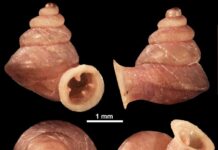LAB-IND RESOURCE SDN BHD (LIR) was established at the turn of the new millennium with the aim of being a premier provider of biotechnological solutions on the international stage.
In a span of eighteen years, we provided biotechnological services to companies and institutions, both domestic and abroad. Through state-of-the-art molecular and protein technologies, we are able to provide support to our partners in the aquaculture, agriculture, and food safety industries.
For more information about our work, visit www.mylabind.wixiste.com/labtesting2u or www.facebook.com/labtesting2u.
Our new interest and new passion is taking us into the sphere of education. LIR is on a mission to democratise STEM education here in Malaysia and the surrounding region. The idea of ‘democratisation’ refers simply to the distribution of power from the hands of the few to the hands of the many.
Advancements in both information technology and engineering has enabled education to move out from the centres of higher education, research institutions, and private labs. Educational platforms like EdX, Coursera, and the up-coming LabXchange make it possible for any student to be taught by experts from all over the world, as well as to share and coordinate lesson plans with other learners. This is democratisation in the world of bits (data).
LIR has chosen to participate in the democratisation of STEM in the world of atoms. Our partnership with Ampylus Inc of the United States is providing a learning technology that enables polymerase chain reactions (PCR) to be conducted in classrooms.
The Mini8 PCR is as effective as a laboratory grade machine, but is much more portable and which only costs a mere fraction of the price. This portability has enabled the Mini8 to be installed in NASA’s deep ocean underwater research station and even in the International Space Station, where DNA experiments designed by high school students have been conducted (read about Genes-in-Space, written by our partner, in the November edition)!
This affordability and portability has the potential to transform STEM education in schools as students and educators will be able to conduct their own molecular biology experiments within their classrooms.
We are bringing this learning technology to market because we believe that the retention of the educational status quo will have significant implications for our country. A report released by the Academy of Sciences Malaysia (2017) has shown a steady decline since 2012 in the number of students entering STEM-related fields. This decline in research output will be a hindrance to Malaysia’s aspirations to be a developed country and having a vibrant, innovative and science-driven economy.
One of the challenges for STEM education listed is that science teaching “is too theoretical”. And we are here to offer a solution.
The Mini8 technology enables the transition from a theory-based education to one in which theory is paired with technical, experiential learning.
To facilitate this movement, the hardware of the Mini8 PCR is paired with sequential designed learning lab modules designed with specific learning objectives in mind.
Educators can employ or adapt these lesson plans according to the educational needs of the Malaysian classroom. Science need not remain merely conceptual because it can now be actualised.
One of the challenges for STEM education listed is that science teaching “is too theoretical”. And we are here to offer a solution.
Such a paradigm shift in education will contribute to a greater retention of the best and brightest in STEM related fields, thereby propelling Malaysia to new heights.
We know that Malaysia has no lack of internationally recognised talent and world-beaters within our educational pool. However, our young scientists and science educators must be tangibly supported with tools to explore, develop, and create for themselves.
Rome was not built in a day. Likewise, changes of educational paradigms in Malaysia will take time and cannot be transformed solely through our efforts.
To date we have successfully engaged six schools, 25 educators, and over 400 students. The response has been incredibly encouraging and has given us confidence that this learning technology offers true transformative potential, but much work remains to be done.
Thus, LIR is looking to partner with educators all across the gamut of the Malaysian education system and at all levels.
For the readers who are neither educators nor students but who are interested in the potential of this learning technology, do not hesitate to contact us. We want to bring DNA sciences not only to schools but also to interested communities. DNA science can now be a pursuit for all.
In conclusion, the democratisation of knowledge is happening in the world of both bits and atoms. We are committed to this movement with our efforts to bring DNA science to Malaysia and the Asean region because this learning technology has the potential to accelerate STEM education and research on all levels.
Join us on this journey as we continue #inspiringSTEM and bringing #everyoneDNAscience
Contact us at josiah.liew@mylabind.com and winnie.siow@mylabind.com

















